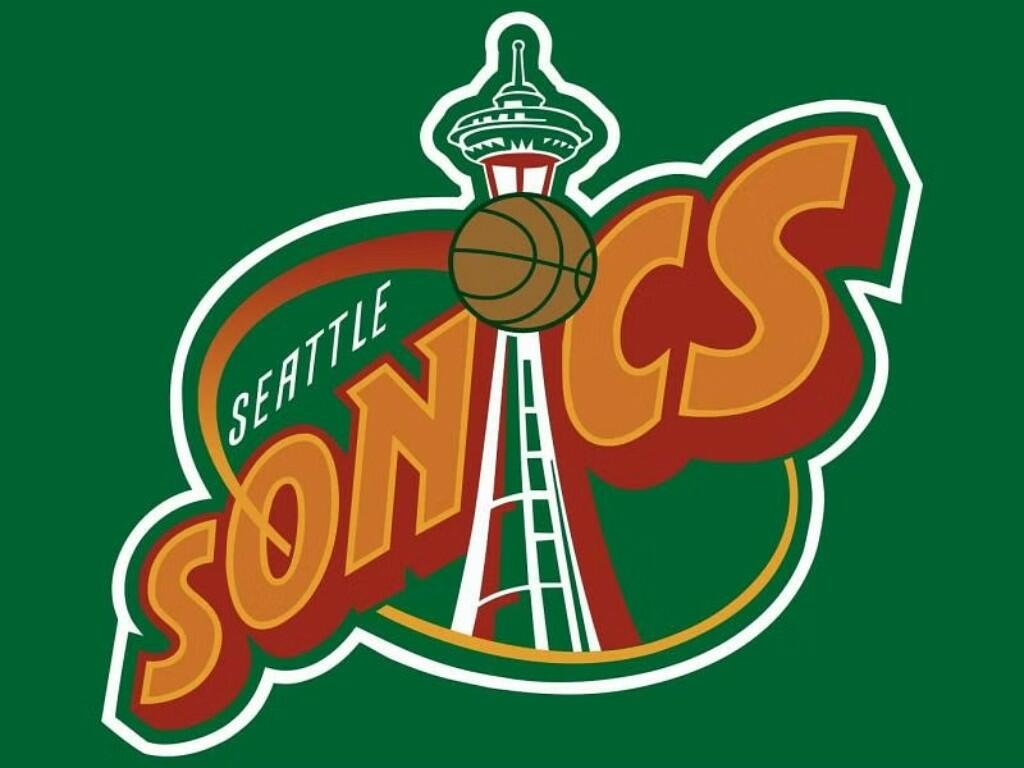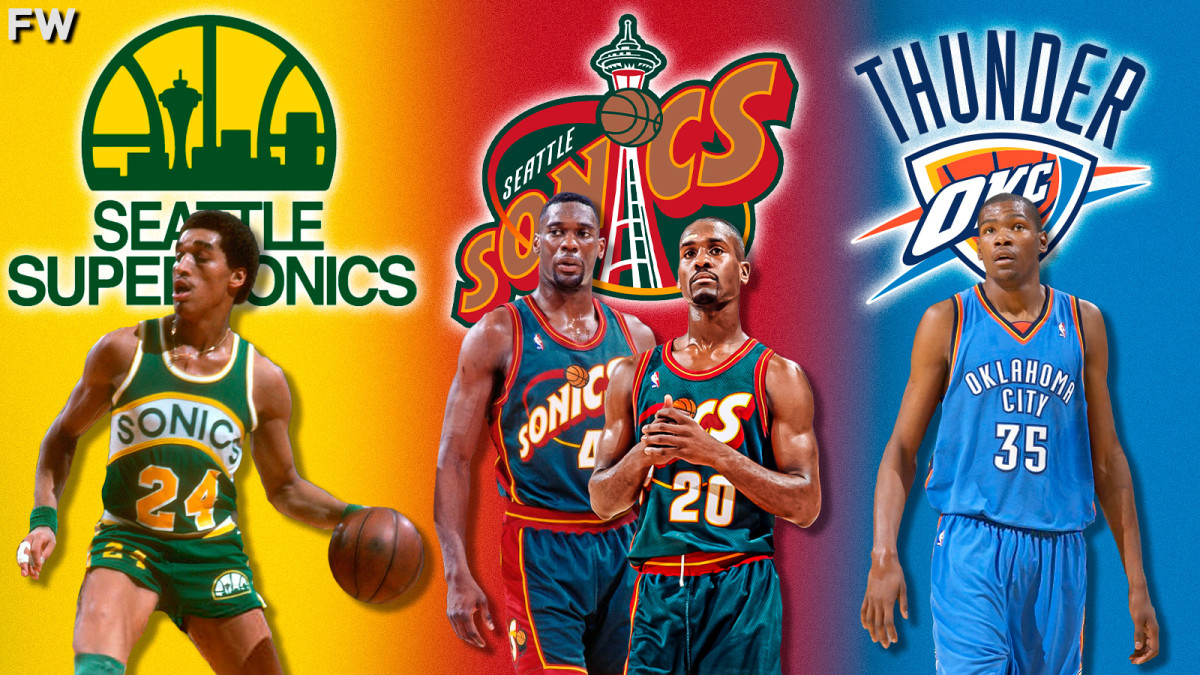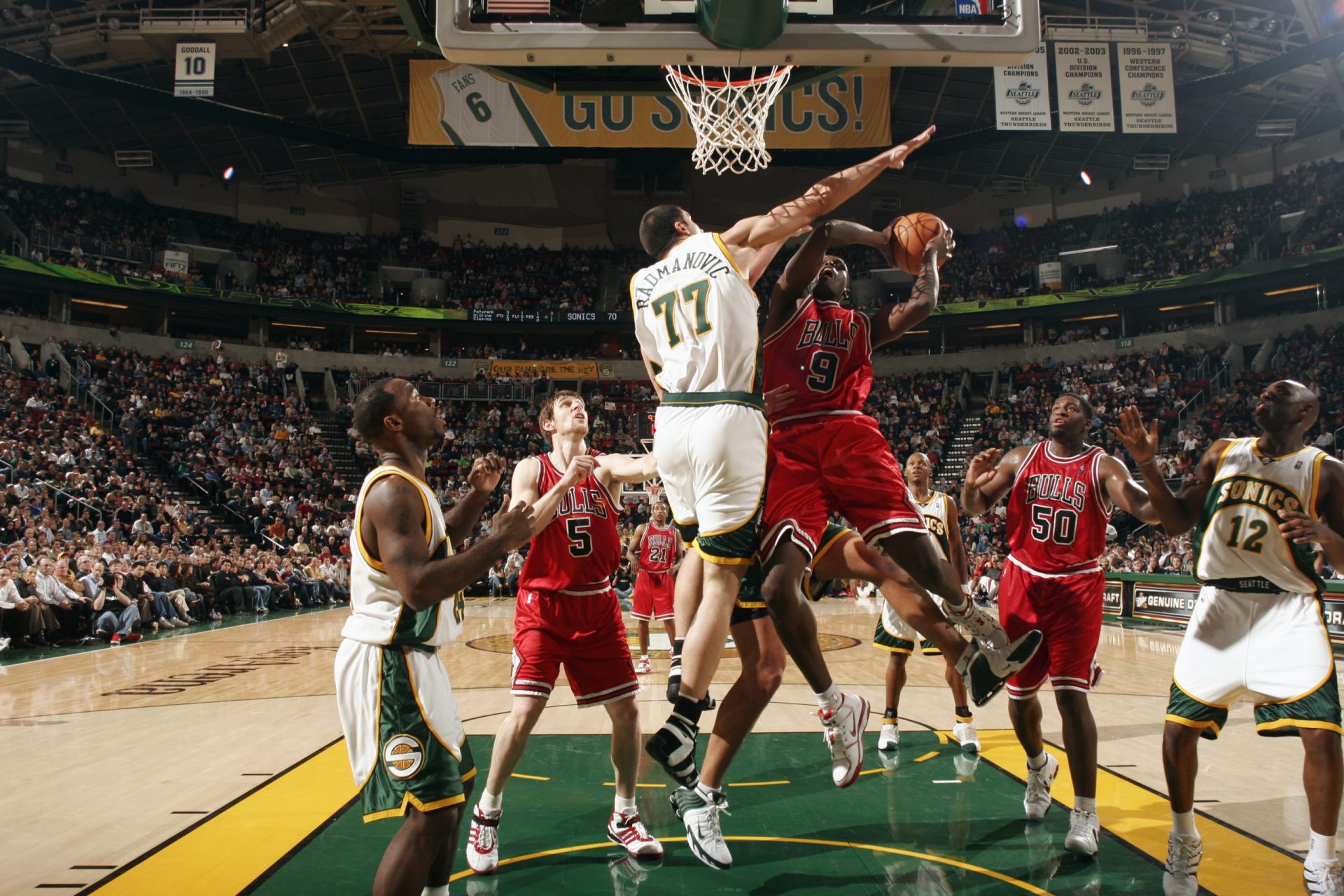Did the Emerald City truly lose its team, or was it stolen away in the dead of night? The saga of the Seattle SuperSonics is a cautionary tale of broken promises, financial maneuvering, and the unwavering passion of a city scorned. What happened to the Seattle SuperSonics transcends mere sports history; it's a cultural wound that refuses to heal.
The Seattle SuperSonics, affectionately known as the Sonics, were more than just a basketball team; they were a symbol of Seattle itself. From their inception in 1967, as an expansion franchise in the National Basketball Association (NBA), to their abrupt departure in 2008, the Sonics etched themselves into the hearts of generations of fans. The team provided a sense of unity, a shared identity that resonated throughout the Puget Sound. They weren't just playing for victories; they were playing for the city. Their iconic green and gold uniforms became synonymous with Seattle's vibrant culture, a testament to the enduring bond between a team and its community.
| Category | Information |
|---|---|
| Team Name | Seattle SuperSonics (commonly shortened to Sonics) |
| Founded | 1967 |
| League | National Basketball Association (NBA) |
| Home City | Seattle, Washington |
| Arena (Final Years) | KeyArena |
| Relocation Date | 2008 |
| New City | Oklahoma City, Oklahoma |
| New Team Name | Oklahoma City Thunder |
| Championships | 1 (1979) |
| Notable Players | Dennis Johnson, Jack Sikma, Gus Williams, Gary Payton, Shawn Kemp |
| Website | Oklahoma City Thunder Official Website |
The Sonics' journey wasn't always paved with gold. Like any franchise, they experienced their share of trials and tribulations. There were seasons of struggle, rebuilding phases, and moments of profound disappointment. Yet, through it all, the Seattle faithful remained steadfast in their support, filling the stands of the Seattle Center Coliseum (later KeyArena) with unwavering enthusiasm. The team's early years were marked by gradual improvement, building a foundation of solid players and a growing fanbase. The late 1970s brought the sweet taste of success, culminating in the franchise's lone NBA championship in 1979, a victory that sent the city into a frenzy of celebration. Led by the dynamic trio of Dennis Johnson, Jack Sikma, and Gus Williams, the Sonics vanquished the Washington Bullets in a thrilling series, etching their names into Seattle sports lore.
The glory days of the late 70s set a high bar, but the Sonics continued to be a competitive force throughout the 1980s and early 1990s. While another championship eluded them, the team consistently made playoff appearances, providing fans with memorable moments and showcasing rising stars. The arrival of Gary Payton and Shawn Kemp in the late 1980s and early 1990s ushered in a new era of excitement. Dubbed "Sonic Boom," Payton and Kemp formed one of the most electrifying duos in NBA history, captivating audiences with their high-flying athleticism and undeniable chemistry. Their on-court partnership was a spectacle to behold, a symphony of alley-oops, steals, and thunderous dunks that energized the entire city. They spearheaded a resurgence that culminated in another NBA Finals appearance in 1996, where they faced off against Michael Jordan and the Chicago Bulls, falling just short of the ultimate prize in a hard-fought series.
However, beneath the surface of on-court success, a storm was brewing. The aging KeyArena, while steeped in history and nostalgia, began to show its age. It lacked the modern amenities and revenue-generating capabilities of newer arenas around the league. This became a focal point of contention when Starbucks CEO Howard Schultz purchased the team in 2001. Schultz argued that a new arena was essential for the Sonics' long-term viability in Seattle. He sought public funding for the project, but his proposals met with resistance from city officials and taxpayers, who were wary of investing in a privately owned sports franchise. The debate over a new arena became increasingly contentious, dividing the city and casting a shadow over the team's future. The lack of a resolution would ultimately set the stage for the franchise's heartbreaking departure.
The turning point came in 2006 when Schultz sold the Sonics to an ownership group led by Oklahoma City businessman Clay Bennett. Bennett publicly pledged to keep the team in Seattle, but his actions soon betrayed his words. Behind the scenes, Bennett was actively pursuing relocation options, maneuvering to break the Sonics' lease with the city and pave the way for a move to Oklahoma City. His attempts to secure public funding for a new arena in Renton, a suburb of Seattle, were widely seen as a disingenuous attempt to appease fans while secretly planning the team's exit. Documents later revealed that Bennett's primary goal was to relocate the team to Oklahoma City, where he had already laid the groundwork for a new arena and a welcoming political environment.
On September 21, 2007, Bennett initiated legal arbitration, seeking to break the Sonics' lease with KeyArena. The city of Seattle fought back, determined to keep the team that had been a part of its identity for over four decades. The legal battle was a public spectacle, filled with accusations, counter-accusations, and the palpable heartbreak of Sonics fans. The community rallied behind the team, organizing protests, letter-writing campaigns, and public demonstrations in a desperate attempt to sway public opinion and prevent the seemingly inevitable. The atmosphere in Seattle was thick with anger, betrayal, and a profound sense of loss. It was a time of mourning for a team that had been ripped away from its rightful home.
Despite the city's best efforts, the legal proceedings ultimately favored Bennett. On July 2, 2008, a settlement was reached, allowing the Sonics to relocate to Oklahoma City in exchange for a $75 million payment to the city of Seattle. The agreement stipulated that the Sonics' name, colors, and history would remain in Seattle, leaving the door open for a future NBA team to reclaim the SuperSonics legacy. The move was a devastating blow to Seattle sports fans, who felt betrayed and abandoned by Bennett and the NBA. The final game at KeyArena in April 2008 was a somber affair, filled with tears, anger, and a deep sense of injustice. It marked the end of an era, the culmination of a 41-year relationship between a team and its city.
The relocation of the Sonics to Oklahoma City was met with widespread condemnation, particularly in Seattle. Fans felt that Bennett had acted in bad faith, misleading the community and prioritizing financial gain over the team's legacy. The move was seen as a betrayal of the trust that fans had placed in the ownership group, a disregard for the emotional connection between the team and the city. The pain of losing the Sonics was compounded by the circumstances surrounding the relocation, the feeling that Seattle had been robbed of its team by a calculated and deceitful scheme. The anger and resentment towards Bennett and the NBA persist to this day, a testament to the deep wounds inflicted by the Sonics' departure.
The Oklahoma City Thunder, as the Sonics became known, quickly established themselves as a competitive force in the NBA. Led by young stars like Kevin Durant, Russell Westbrook, and James Harden, the Thunder rose to prominence, reaching the NBA Finals in 2012. While the team's success brought joy to Oklahoma City, it also served as a painful reminder of what Seattle had lost. Many Seattle fans refused to support the Thunder, viewing them as a symbol of the betrayal that had taken place. The success of the Thunder only deepened the sense of injustice and longing for the return of the Sonics.
In the years since the Sonics' departure, Seattle has remained a basketball-starved city, yearning for the return of its beloved team. The construction of Climate Pledge Arena in 2021, a state-of-the-art facility built on the site of the former KeyArena, has reignited hopes that the NBA will one day return to Seattle. The arena is designed to meet the demands of modern NBA franchises, providing a world-class venue that could attract a new team or entice an existing team to relocate. The city's strong economy, passionate fanbase, and newly renovated arena make it an attractive destination for the NBA. The clamor for the Sonics' return has only grown louder in recent years, fueled by nostalgia, a sense of unfinished business, and the belief that Seattle deserves to have its team back.
The NBA has acknowledged the desire for a team in Seattle, with Commissioner Adam Silver expressing interest in expanding the league in the future. However, no concrete plans have been announced, and the process of bringing a team back to Seattle could take several years. Potential expansion fees, ownership negotiations, and logistical considerations all present challenges that must be overcome. Despite these hurdles, the hope for the Sonics' return remains alive, fueled by the unwavering dedication of Seattle's basketball fans. The dream of seeing the green and gold back on the court, representing the city once again, continues to inspire a generation of fans who never got to experience the magic of the Seattle SuperSonics.
The third annual Rain City Showcase, held at Climate Pledge Arena, is a testament to Seattle's enduring love for basketball. The event, which features preseason NBA games, draws large crowds and generates excitement for the potential return of the Sonics. These events serve as a reminder of the city's passion for the game and its readiness to embrace an NBA team once again. The Rain City Showcase and similar events help to keep the dream alive, showcasing Seattle's vibrant basketball culture and demonstrating the city's unwavering commitment to the sport.
Seattle Mayor Bruce Harrell's purchase of a Sonics t-shirt at a local store serves as a symbolic gesture, a reminder of the city's collective longing for the return of its team. It's a small act, but one that resonates with fans who see it as a sign of support from the city's leadership. The simple act of wearing a Sonics t-shirt becomes a statement, a declaration of allegiance to the team and a symbol of hope for the future. The mayor's gesture underscores the enduring connection between the city and its lost franchise.
As the years pass, the memory of the Seattle SuperSonics continues to burn brightly in the hearts of fans. The team's history, its triumphs and tribulations, its iconic players and memorable moments, all remain etched in the collective memory of the city. The pain of the team's departure may never fully heal, but the hope for its return endures, fueled by the unwavering passion of Seattle's basketball community. The story of the Seattle SuperSonics is a complex and emotional one, a tale of love, loss, and the enduring power of sports to unite and inspire a city.
Today marks the anniversary of the day that Seattle lost its beloved SuperSonics, a day that will forever be etched in the memory of the city's basketball fans. The pain of the team's departure is still raw for many, a reminder of the broken promises and the betrayal that led to the relocation. However, amidst the sadness, there is also a sense of hope, a belief that the Sonics will one day return to Seattle, reclaiming their rightful place in the city's sports landscape. The dream of seeing the green and gold back on the court, representing the Emerald City once again, continues to inspire a generation of fans who refuse to let the memory of the Seattle SuperSonics fade away.



Detail Author:
- Name : Miss Delta Sanford II
- Username : erippin
- Email : hipolito14@auer.biz
- Birthdate : 1990-04-16
- Address : 6057 Lloyd Centers Darianafurt, CO 19401-0064
- Phone : +1 (930) 938-4250
- Company : Labadie-Dicki
- Job : Lawyer
- Bio : Occaecati atque et non qui error. Id et sint sit illo quasi quas. Vel ad eligendi sed sed. Nemo et sint et illum.
Socials
linkedin:
- url : https://linkedin.com/in/rice2010
- username : rice2010
- bio : Accusantium amet officiis velit assumenda ad et.
- followers : 4703
- following : 155
facebook:
- url : https://facebook.com/rice1991
- username : rice1991
- bio : Molestiae est qui enim debitis in omnis.
- followers : 6073
- following : 2215
twitter:
- url : https://twitter.com/francisca.rice
- username : francisca.rice
- bio : Aliquid aut blanditiis et fugiat. Est ratione exercitationem nostrum maiores. Perferendis nihil at placeat impedit.
- followers : 4713
- following : 2322
tiktok:
- url : https://tiktok.com/@francisca1423
- username : francisca1423
- bio : Earum rerum doloremque accusantium tempora id dolorem et reiciendis.
- followers : 2528
- following : 1455
instagram:
- url : https://instagram.com/ricef
- username : ricef
- bio : In qui sunt ut aut. Assumenda delectus eum sint et ut. In incidunt non rerum dolore.
- followers : 1093
- following : 1264